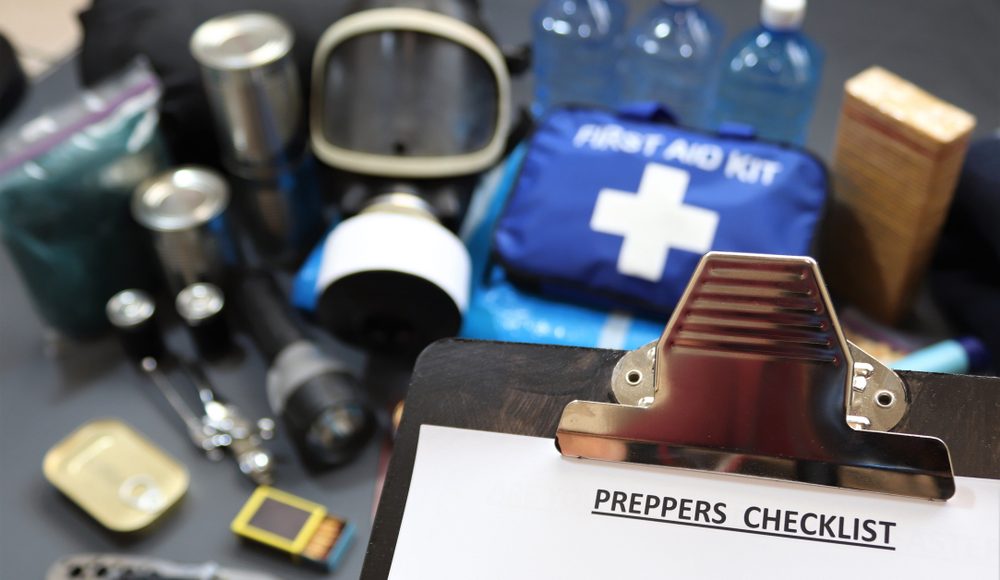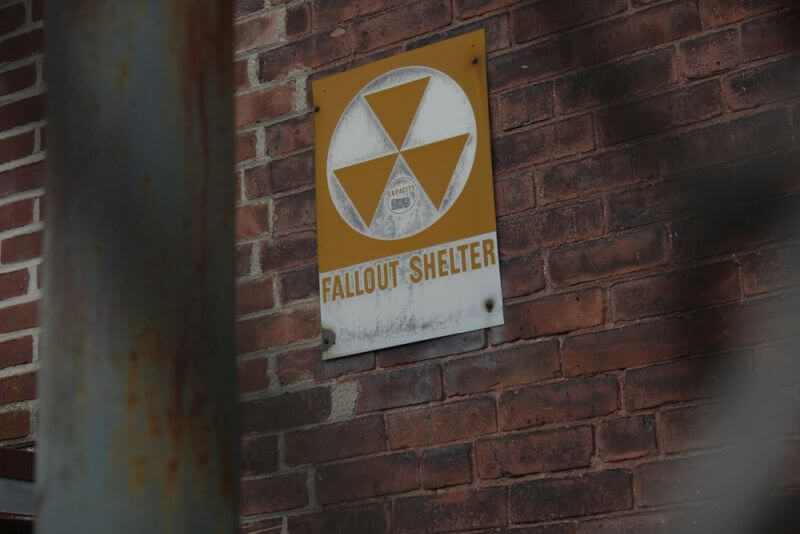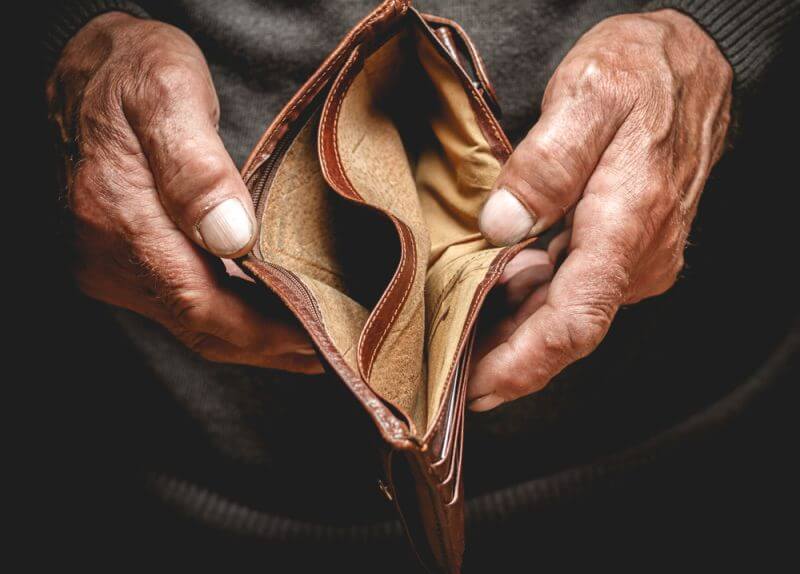We live in a throw-away world, and we are programmed to consume and consistently get the “newest and best” items. Most of the things we buy are made to break after a few years due to the planned obsolesce policy that governs most industrial and manufacturing companies. And even worse, most of us no longer attempt to fix the broken items before tossing them out.
We use all sorts of disposable things, and we complain that our landfills are filling and end up becoming biohazards. We throw construction materials instead of salvaging them, and people even toss aside good lumber because it doesn’t have a smooth finish or just because it has a few nails.
I remember that my grandfather threw nothing away, and like everyone from his generation, he used to keep stuff that could be reused. And just like those before him, he learned the value of things and had a frugal way of living. As preppers, maybe we should get back to that thriftiness and change our way of thinking.
Budget living
In today’s modern world ruled by technology and convenience, it’s easy to go overboard when shopping for necessities, and we have credit cards to prove it. My grandparents didn’t have such things in the ’30s and ’40s, and they managed to thrive even though money was tight sometimes.
They had to do without, and they learned to make things. They would often fix broken things and barter for stuff they needed. These principles governed their lifestyle, and they passed their beliefs to their children and grandchildren.
My dad was a hardworking man, and we didn’t have money to splurge. We had to work for everything we had. My mother used to mend our clothes, and most of the stuff I was wearing was hand-me-downs from my brother. We didn’t buy new clothes just because the old ones had a hole or two in them. Nothing was wasted, and my mother would patch everything prolonging their life and save some money down the road.
And we didn’t have any games to play or other distractions today’s kids have, and we didn’t sit around the house getting bored. We had chores, and we all pitched in to keep the house and the backyard clean. And when we finished our chores, we used to explore the outdoors, and we would often hunt, fish or forage.
We ate at the restaurant only during special occasions or when there was something to celebrate. My mother used to cook all the time, and we helped as much as we could, and we never wasted food.
My father spent most of his free time repairing the car to make sure it could depend on it for work and other chores. And when the car was working, he did all sorts of maintenance jobs on the house, or he would take care of the garden.
My wife and I have it better than our parents did, and even so, we still try to live using the lessons they taught us. We appreciate the things we have, and we often try to save some money by thinking creatively.
Learning a few basic skills
I’m a curious man by nature, and I try to learn as many things as possible, regardless if it relates to prepping, off-grid living, or just getting by. Everyone needs to learn a few basic skills to get by in life, and things such as plumbing, mechanics, and electrical competencies will help you live on a budget.
Did you ever have to call an electrician or a plumber? How expensive was your bill?
Most families ask for professional help, even for the simplest fixes, and they do not spend the time researching how to fix things on their own or how they can save money on that final bill.
My father is a self-taught handyman, and he can fix pretty much anything he puts his mind to, and he does so even today.
He does it not out of necessity as he did in the past, but because he has access to information more easily, it keeps him active.
He says that we have it easy nowadays with all the YouTube videos and 3d printing that allows you to manufacture various parts and not wait a week or two to receive such parts after ordering them from a catalog as he did in the past.
He is still a good mechanic and knows all sorts of electrical work, but he doesn’t trade his skills for other jobs as he did back then. He’s now happy to fix things around his house or help his kids and grandkids mend stuff around their house.
By learning a few basic skills, even things like cooking or sewing, you will be able to save a little money here and there. If you are a good hunter or an experienced angler, those cooking skills will be an added plus, and you will be able to cook and preserve food, and ultimately, cut your grocery bill.
I’m not a good mechanic like my father, but I’m a decent woodworker, I know how to fish and hunt, and honestly, I consider myself a pretty darn good forager (thanks to my grandpa). I have other modern skills, but those won’t help much in the future if we are forced to get back to our roots.
I believe that one day, the experience I’ve earned over the years, will help me trade my basic skills for necessary goods or services.
How about bartering?
In small communities, bartering is still practiced, just like in the old days, before there was a widely used currency. People used to trade their skills in return for items or services they needed. If possible, you should barter rather than spending cash and try to do so as often as possible.
For example, I’m good at fixing and putting together computers, and it’s a skill that comes in handy in this modern world. A friend of mine asked me to fix his computer and upgrade the computers of his kids (I had to replace various parts), and he wanted to pay me for my time, but I asked him to make me a knife. He’s a welder and ironworker and does blacksmithing on the side to earn some extra money. So, in the end, he got what he needed from my side, and I ended up with a new knife.
My father-in-law is very good at sharpening anything bladed, and he often sharpens knives, axes, and pretty much anything he can get his hands on for his neighbors. He doesn’t want to get paid for his service, but he does receive fresh eggs, vegetables, and canned goods as a thank you.
You can choose to get paid for your skills and service, or when hard cash isn’t available, you can barter and get stuff you need. You will save money down the road and spend it on things you can’t trade for, like, for example, your utility bills or fuel.
Don’t waste food
We are a nation that buys a lot of food and throws it away quickly without thinking twice about it. Kids nowadays fill their plates with more than they can eat, and a lot of food goes to waste. It seems that people don’t save leftovers for later, and they don’t know how to improvise new dishes using those leftovers.
I remember my mother used to make hash from leftover roast beef, carrots, and potatoes. She would boil carcasses of chickens, duck, geese, and any other fowl, and the water and juice became cooking stock for stews. Any leftover meat was frozen and used for stews.
People used to get creative since they couldn’t afford to waste any food back in the day. Nowadays, with all the online recipes, you should never waste any food, and you can transform any leftovers into new and tasty meals.
Don’t throw away stuff
I’m honestly amazed how much stuff we throw away every day, and even in my household, many things go to waste. It’s incredible if you stop to think about it. How come we never keep stuff just in case to reuse it?
My father taught me to reuse and keep stuff around since you never know when it may become useful. I have many cans full of screws, nuts, and bolts in my garage, and my shed is full of lumber that my neighbors wanted to throw away. There are a few bags filled with plastic bottles that are just waiting to be reused, and I often use the bottom halves of these plastic bootless to start my seeds. The tops I use to cover my seedlings in case a late frost may damage them. I also have a lot of bottles filled with grains in my basement.
Now before you call me a hoarder, let’s take a closer look at things. If I start working on a project and need a screw, nails, or a few bolts, I pull out the cans from my garage and take what I need.
If you don’t have a reserve of screws, you have to stop your project, hop in the car, and head for the nearest hardware store. Sure, you’ve only spent a few dollars for those bolts, and maybe it’s not worth thinking twice about it. But how about your time? How about the gas you spent for those screws? Leaving on a budget means saving a few greenbacks here and thereby thinking creatively.
Almost everything that gets thrown away can be repurposed at least once before ending up in the recycle bin.
How about discarded wood? Have you seen the price of lumber lately? It’s outrageous!
Many wooden pallets are being thrown away or wood boards because they have a few nails or nodes that make them plain ugly for various artistic projects. The pine boards your neighbor threw away might be what you needed to finish your project. I’ve used salvaged plywood and leftover shingles and pretty much anything I could get my hands on for various projects and saved a lot of money.
Even the clothes that can no longer be used end up becoming rags that my wife uses to clean the house, or they end up in my garage and help me reduce the number of paper towel roles I use. Pieces from old clothes were turned into cat toys, or she uses them for all sorts of sewing projects to make all sorts of things, some of which become gifts.
Concluding
Your parents and great parents used all available resources, and they managed not only to survive but also to thrive. They weren’t used to throwing things away that could be reused, and living on a strict budget encouraged them to rethink new lives for the things that would, otherwise, end up in the trash.
Adopting some of their old principles and penny-pinching examples will help you save money, become creative, and eventually reduce the waste that ends up in the local landfill.









